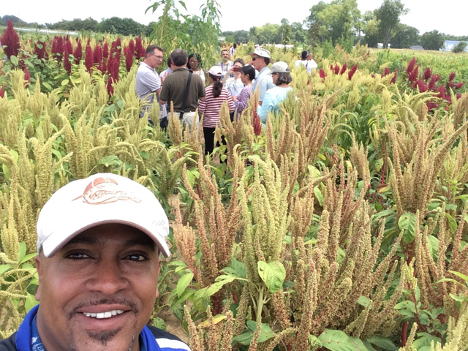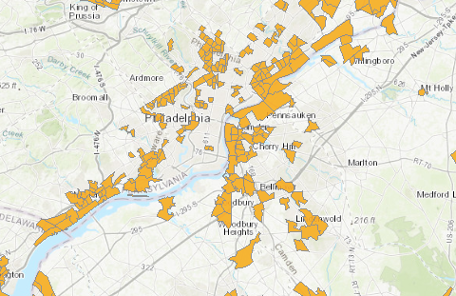
How One Major Historically Black College Leverages Technology to Ensure Populations Achieve Food Sovereignty
Reality Check | ecoWURD | radio
Dr. Reginald Archer, Professor of Agricultural and Environmental Sciences at Tennessee State University, joins ecoWURD radio on WURD’s Reality Check w/ Charles Ellison for a discussion on the importance of innovative “agritech” and how technology like geospatial information systems or “GPS” can help vulnerable communities fight food insecurity.
Archer describes GIS as creating areas for opportunities in many disciplines and areas of industry like agriculture. Those opportunities can be transferred into food sovereignty for vulnerable populations, such as low-income communities in Philadelphia dealing with food deserts or lack of access to quality, nutritious food. Historically Black Colleges and institutions like TSU are equipping students to analyze data, answer questions and solve problems in a cutting-edge scientific environment. GIS is a computer system designed to capture, store, manipulate, analyze, manage and present geographical data. Tennessee State University’s GIS studies program is at the forefront of that
Food desert identification is happening now through programs such as the U.S. Department of Agriculture’s “Food Atlas” program, which shows how severe that problem is in a number of cities, including Philadelphia …

This type of technology also helped Harvard researchers, in 2018, identify urban foodscape trends and where food insecurity is most pronounced. Chicago was used as the case study. “We mapped the average street network distance to the nearest supermarket across census tracts in 2007, 2011, and 2014, and identified spatial clusters of persistently low, high or changing access over time,” researchers noted. “Although the total number of supermarkets increased city-wide, extremely low food access areas in segregated, low income regions did not benefit. Among black and socioeconomically disadvantaged residents of Chicago, access to healthy food is persistently poor and worsened in some areas following recent economic shocks.”
“Food is at the heart of survival during a pandemic like this one,” Dr. Archer tells ecoWURD. “Food, energy, or agriculture is more than farmed, but it includes everything that’s growing on the land to produce the animals we consume, but also biotechnology biofuels energy.”
“So agriculture is at the heart of that, and it’s clearly been impacted. When we talk about immunity to pandemics, the agricultural sector is definitely not in the news. Consider the shopping among consumers, you know this had a huge impact on our supermarket or grocery stores or food delivery. All of those items all of those essential services have been impacted, the entire service industry food service industry restaurants included as you can, as you can see some of these are agricultural systems under pressure, agricultural workers are under pressure because they go to work, agricultural businesses, and all of the logistics associated with how to get a good, healthy food and clean water. The labor problems, exacerbate that issues when people are not able to go to work then impact food security, and it’s a global issue. Food Security has already been an issue around the world where there are multiple groups, including small scale farmers. People that even fish. That might be hindered from working their land to working the waterways and caring for their livestock, and those types of things. So we face these enormous challenges and accessing their markets to selling their products.”
“GIS is precision agriculture, using precise location data in order to move the equipment around, for example, to test soil, and identify all those kinds of things, the technology is really important. We program the data to create program development models that work to help the soil that is needed for certain plants.”



